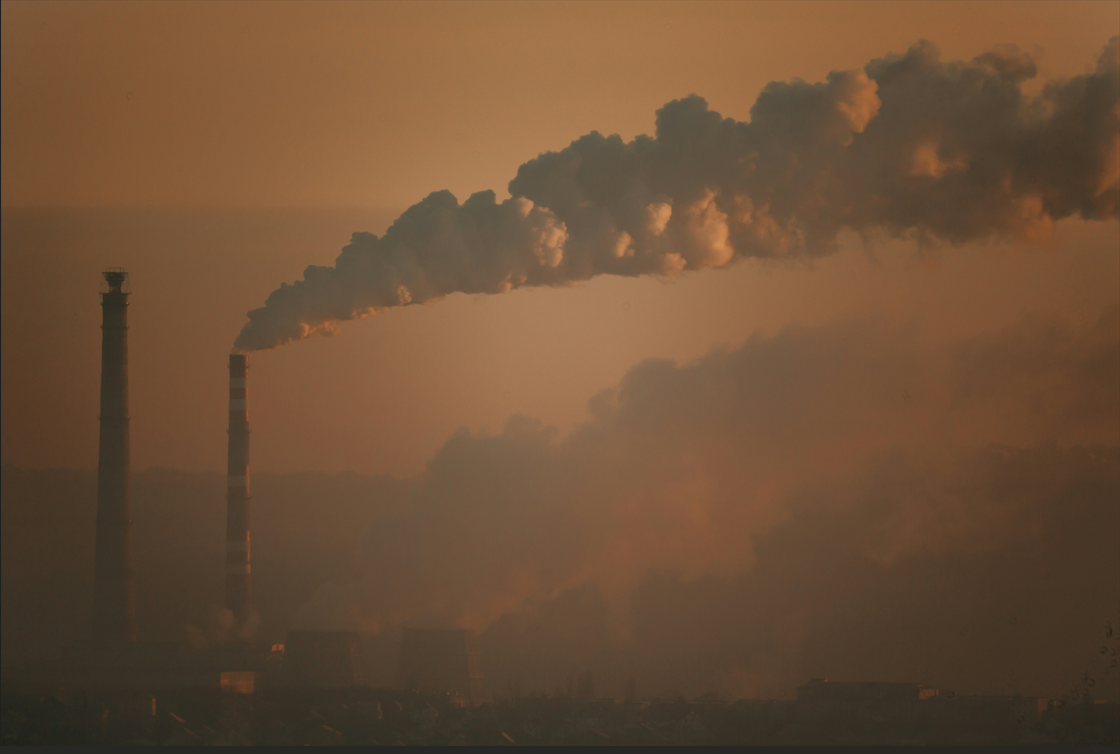The Role of Climate Change in Worsening Air Quality Across Nigerian Cities
Published on 11 Mar, 2025

Imagine stepping outside your home and taking a deep breath—only to inhale a cocktail of smoke, toxic gases, and dust. This is the daily reality for millions of Nigerians as climate change worsens air pollution across the country. Rising temperatures, erratic weather, and unchecked human activities are turning Nigeria’s air into a silent killer, particularly for children, women, and the elderly.
The deadly link between climate change and air pollution
Climate change isn’t just about rising seas and melting glaciers—it’s about the air we breathe. Higher temperatures speed up the formation of smog, while unpredictable rainfall means pollutants linger longer in the air. Dry seasons intensify dust levels, making every breath heavier and more harmful.
How bad is the air in Nigeria?
Nigeria ranks among the world’s most polluted countries. Cities like Lagos, Kano, Abuja, and Port Harcourt are suffocating under thick clouds of pollutants. Nigeria’s air pollution is seven times worse than the safe limit set by the World Health Organization (WHO) *** *. The biggest culprits?
- Smoke and dust (PM2.5, PM10) from cars, factories, and waste burning.
- Toxic gases (CO, SO₂, NOx) from traffic congestion and industries.
- Greenhouse gases (CH₄, CO₂) from gas flaring and deforestation.
- Chemical emissions (NH₃, H₂S) from fertilizers and livestock farming.
What this means for your health
Every breath of polluted air increases the risk of serious illnesses, including:
- More asthma attacks and lung infections in children.
- Worsening breathing problems for people with conditions like COPD.
- Higher chances of heart disease, strokes, and even premature death.
And it’s the poorest communities who suffer the most—living near highways, factories, and waste-burning sites, where pollution is worst.
What’s polluting Nigeria’s air?
Gas flaring: The invisible poison
- Nigeria’s oil industry releases more harmful gases than the rest of Sub-Saharan Africa combined **.
- Despite laws against gas flaring, weak enforcement means pollution continues unchecked.
Traffic and old vehicles: A moving menace
- Nigeria is flooded with old, high-emission cars that release dangerous fumes.
- In Lagos alone, air pollution claims over 11,000 lives each year ** *.
Factories and waste burning: A toxic mix
- Industrial sites pump toxins into the air, while open-air waste burning suffocates communities.
Cooking with firewood: A silent killer
- 80% of Nigerians rely on firewood or charcoal, creating indoor smoke that is as deadly as outdoor pollution.
- Household air pollution is a leading cause of childhood deaths in Nigeria ***.
Why haven’t we fixed this?
Nigeria has some environmental laws, like the Climate Change Act (2021) and the National Council on Climate Change (NCCC), but they aren’t working because:
- Pollution laws aren’t strictly enforced.
- Many programs don’t have enough funding to make a difference.
- The public isn’t aware of just how dangerous air pollution is.
What can we do?
The role of the C²REST project
At C²REST (Climate Change and Respiratory Health Study), we are actively working to understand and combat the effects of air pollution on public health. Our efforts include:
- Researching the long-term effects of air pollution on respiratory diseases in Nigeria.
- Measuring air pollution exposure among vulnerable populations.
- Engaging communities to increase awareness and promote behavioral changes.
- Advocating for stronger policies to regulate emissions and improve air quality.
Stronger laws and accountability
- Enforce stricter rules on gas flaring, vehicle emissions, and waste burning.
- Stop the import of old, high-emission cars that pollute the air.
Clean energy and sustainable transport
- Expand public transport to reduce congestion and vehicle pollution **.
- Make clean cooking fuels affordable so fewer people rely on firewood.
Better air monitoring and public awareness
- Install real-time air quality sensors in major cities to track pollution levels.
- Educate people on how pollution is affecting their health and what they can do.
Green cities and smarter waste management
- Stop open waste burning and promote recycling programs.
- Plant trees in urban areas to absorb pollutants and improve air quality.
Air pollution in Nigeria is an urgent crisis, made worse by climate change. It’s not just about dirty skies—it’s about our health, our children’s future, and the quality of life for millions. If we act now, we can breathe cleaner air, live healthier lives, and build a future where fresh air isn’t a luxury, but a right.
Sources:
- *Niyi-Odumosu F. et al. (2025). Exploring the impact of climate change on respiratory health in Nigeria. Climatic Change, 178(35). https://doi.org/10.1007/s10584-025-03880-0
- **Croitoru, L. et al. (2020). The cost of air pollution in Lagos. World Bank Group.
- ***WHO (2023). Air quality guidelines global update 2021.
